Havana, During the Days of National Mourning: November 26 – December 4, 2016
Posted on March 6, 2017 at 2:56 PM
I arrived in Havana on November 29th and found this message taped to the wall inside the elevator in the hotel where I was staying.
“Dear Guests:
On the death of the Commander in Chief of the Cuban Revolution, Fidel Castro Ruz, The Council of State of the Republic of Cuba declares nine days of National Duel, from 06:00 hours of November 26th until 12:00 hours of December 4th 2016. During the validity of the National Duel will cease the activities and public spectacles, will waive (sic) the national flag at half-mast in public buildings and military establishments. Radio and television will maintain an informative, patriotic and historical programming.
Council of State of the Republic of Cuba”
Not knowing exactly what constituted the “National Duel,” I looked it up:
“Bereavement or national mourning is a day or group of days dedicated to tasks of mourning, memory or reflection by a death of significance for the whole country or the anniversary of the same. This duel is usually decreed by the government of the country in question, and it is respected by the majority of the population.”
Included in the cessation of activities and public spectacles were the following: no alcohol could be sold and no music could be played.
I arrived in Havana in time to attend Fidel’s final rally in the Plaza de la Revolución (see blog post from February 2017) but I stayed to see how and if Fidel’s death would immediately impact Cuba’s capital city. I had no expectations. I wanted to record the history of this particular time. Cuban flags of all sizes dominated the landscape: some hand-painted, some tied in place, some elaborately displayed, all prominently illustrating appreciation for a fallen leader.
Havana without music was a very quiet place. I had been told that this was a time for personal reflection and the lack of music lent credence to the idea. Like others, I associated Cuba with a sense of rhythm. Whether overt or not, it was part of the makeup of this incredible culture. Not to hear it while walking down the street was noticeable and I missed it. Although my steps carried me to each destination, I longed for the matching beats that signified I was in Cuba. I met other Americans who were really disappointed that they couldn’t indulge in any of the alcoholic concoctions for which Cuba is so well known.
They’d booked their time in Havana long before Fidel’s death and found it disconcerting that they couldn’t enjoy a mojito, or a Cuba Libre, or any of the other things that the sugar cane and Bacardi families had long provided this country. They felt cheated. I thought about them on December 5th as I enjoyed every last sip of my mojito.
In the days of mourning that followed Fidel’s final rally in Havana, it was obvious that life went on. Hotels prepared for new guests, grandmothers walked grandchildren home from school, cars carried people along the Malécon and tourists looked for the romance of a long-past revolution. On the eve of December 3, I listened to Raúl Castro on the television as he readied his country for interment of his brother the next morning at the Santa Ifigencia Cemetery. All that had come before this moment in Cuba’s long and complicated history was over.
Following the mourning period, normalcy resumed: music returned to the streets, Internet hotspots flourished, all things alcoholic could be purchased and/or served which made tourists very happy, and the indomitable spirit of the Cuban people, once again, prevailed.
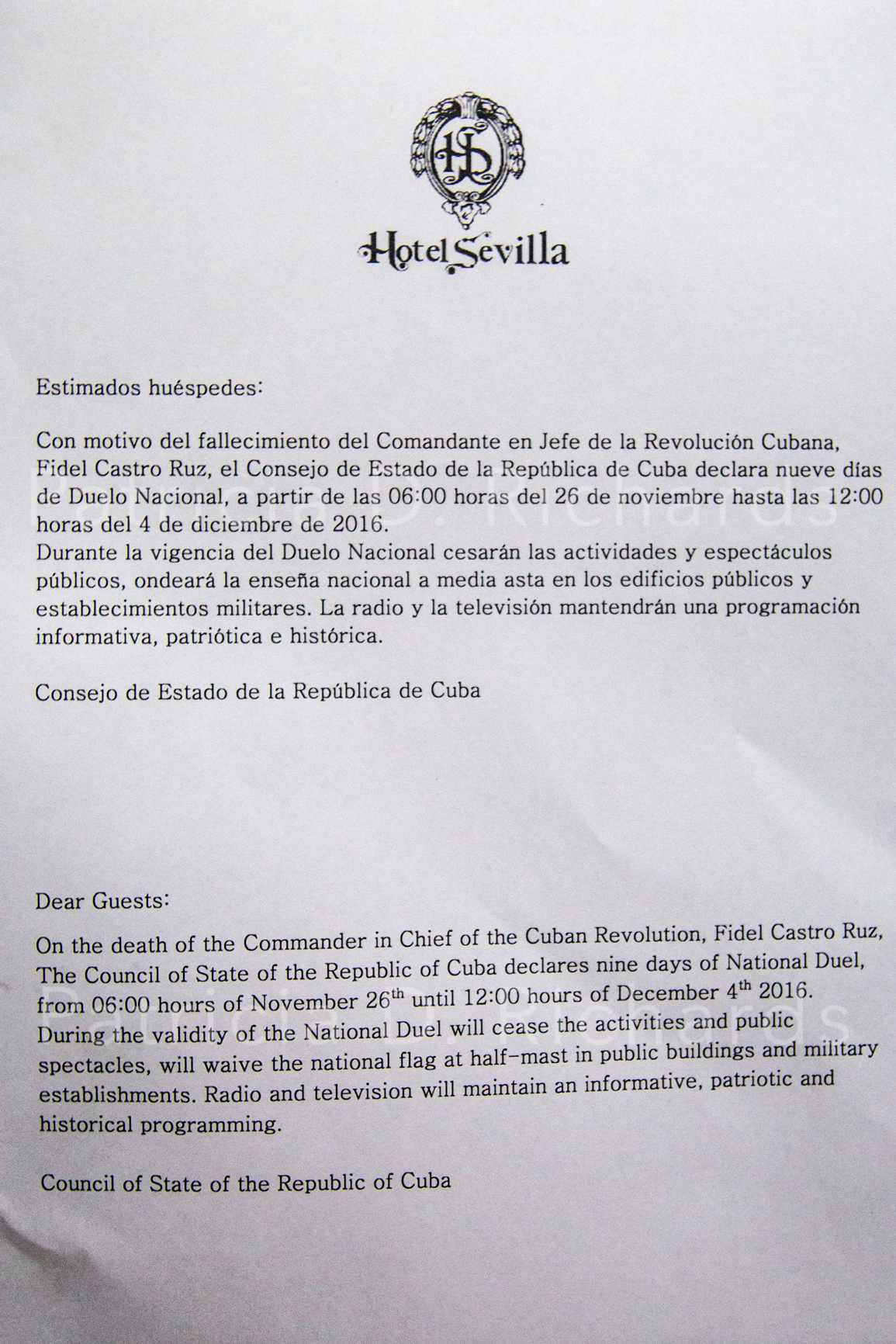
Council of State
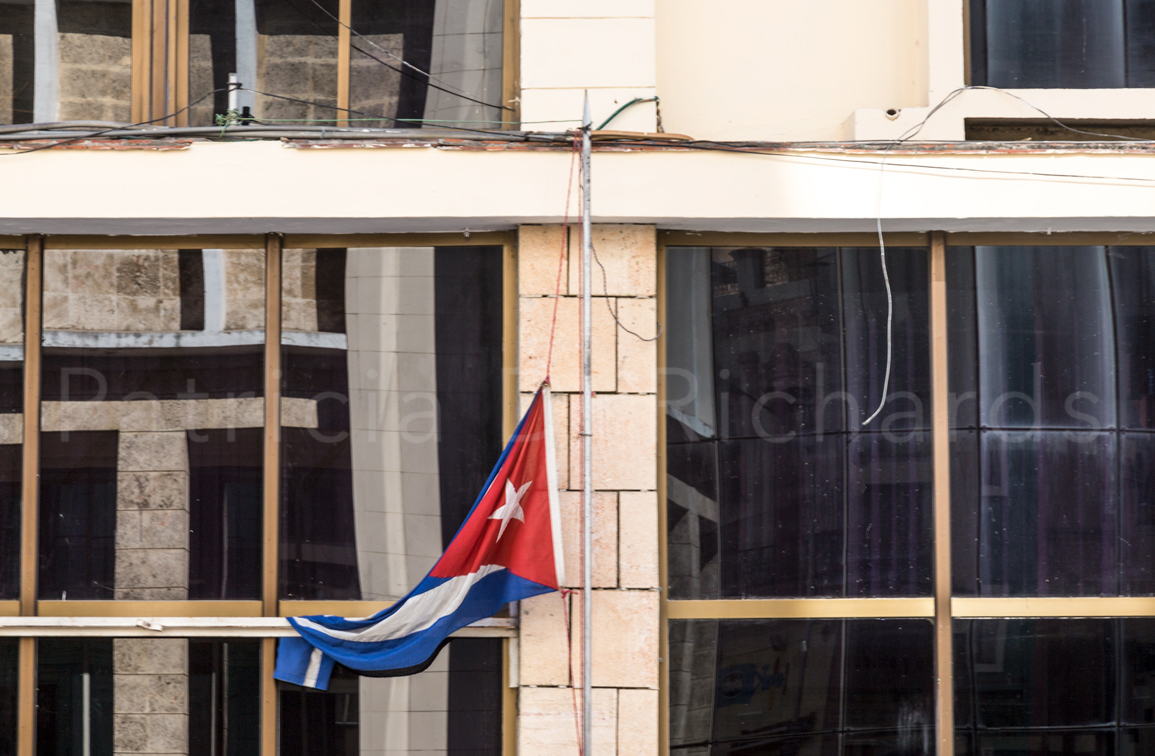
Tied in Place
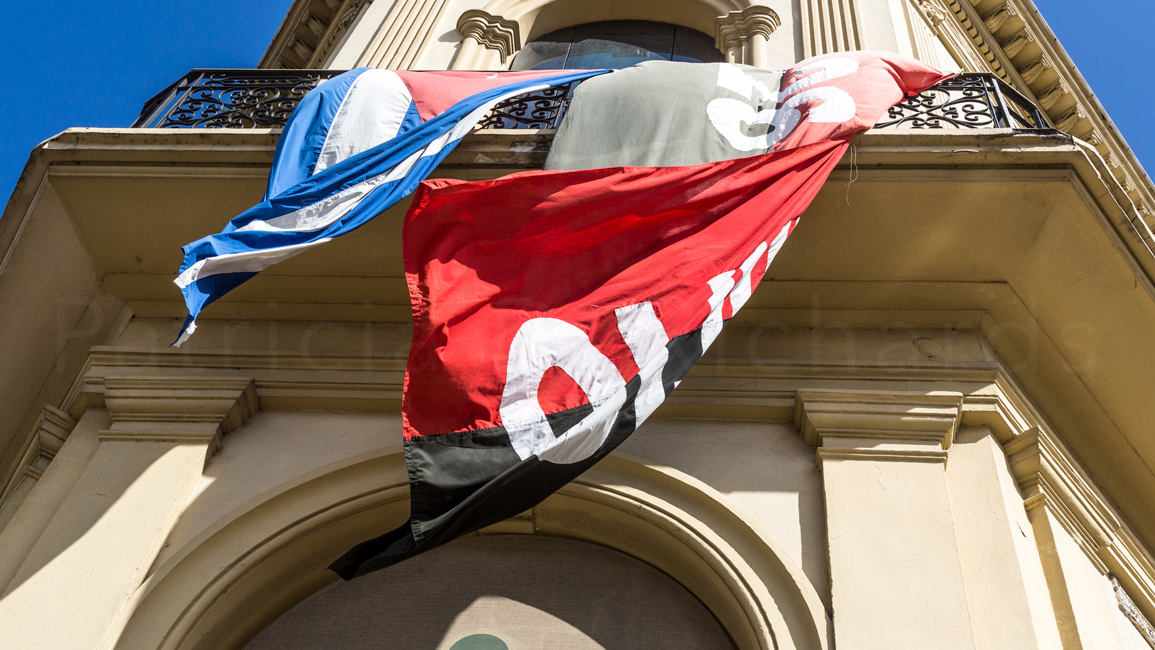
Cuban and 26th July Flags
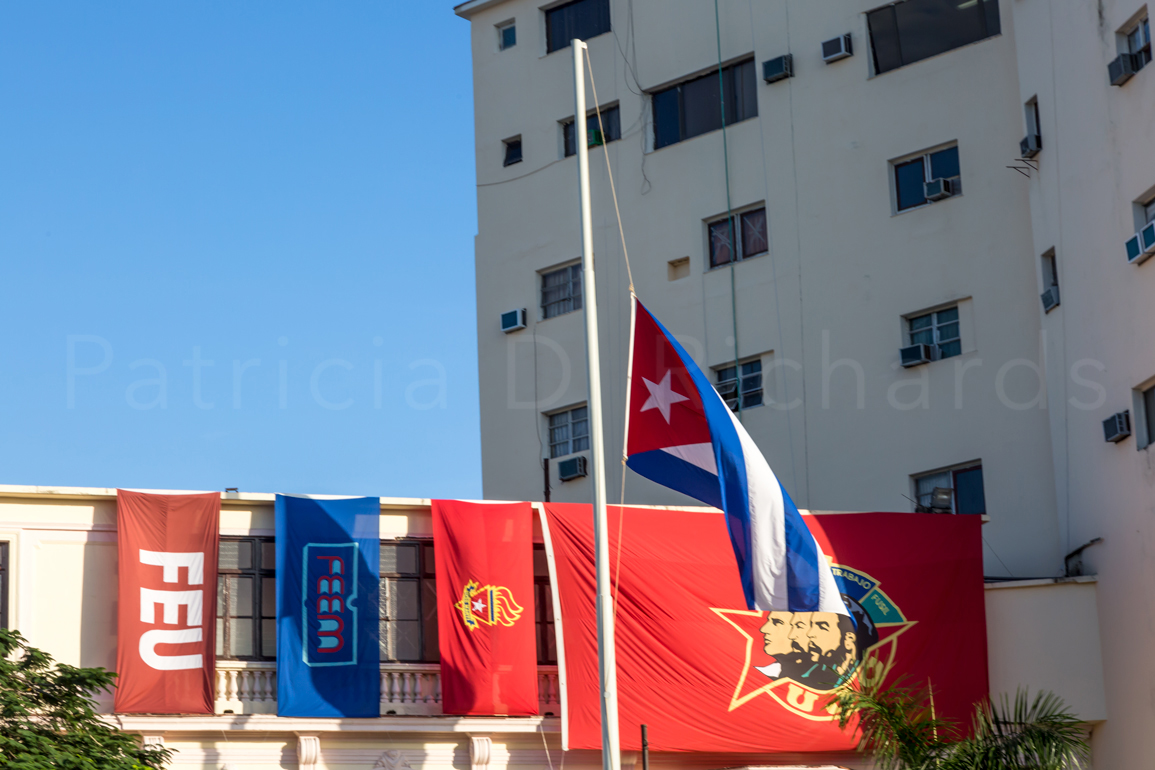
On Display
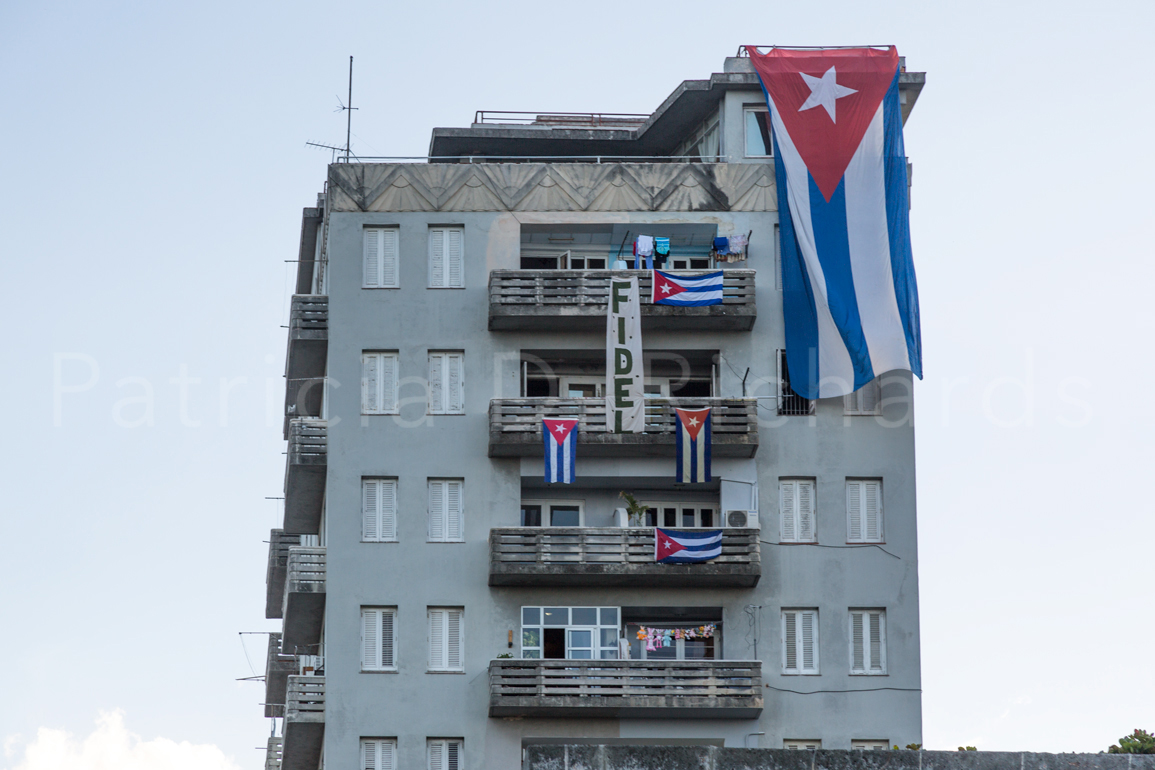
Fidel
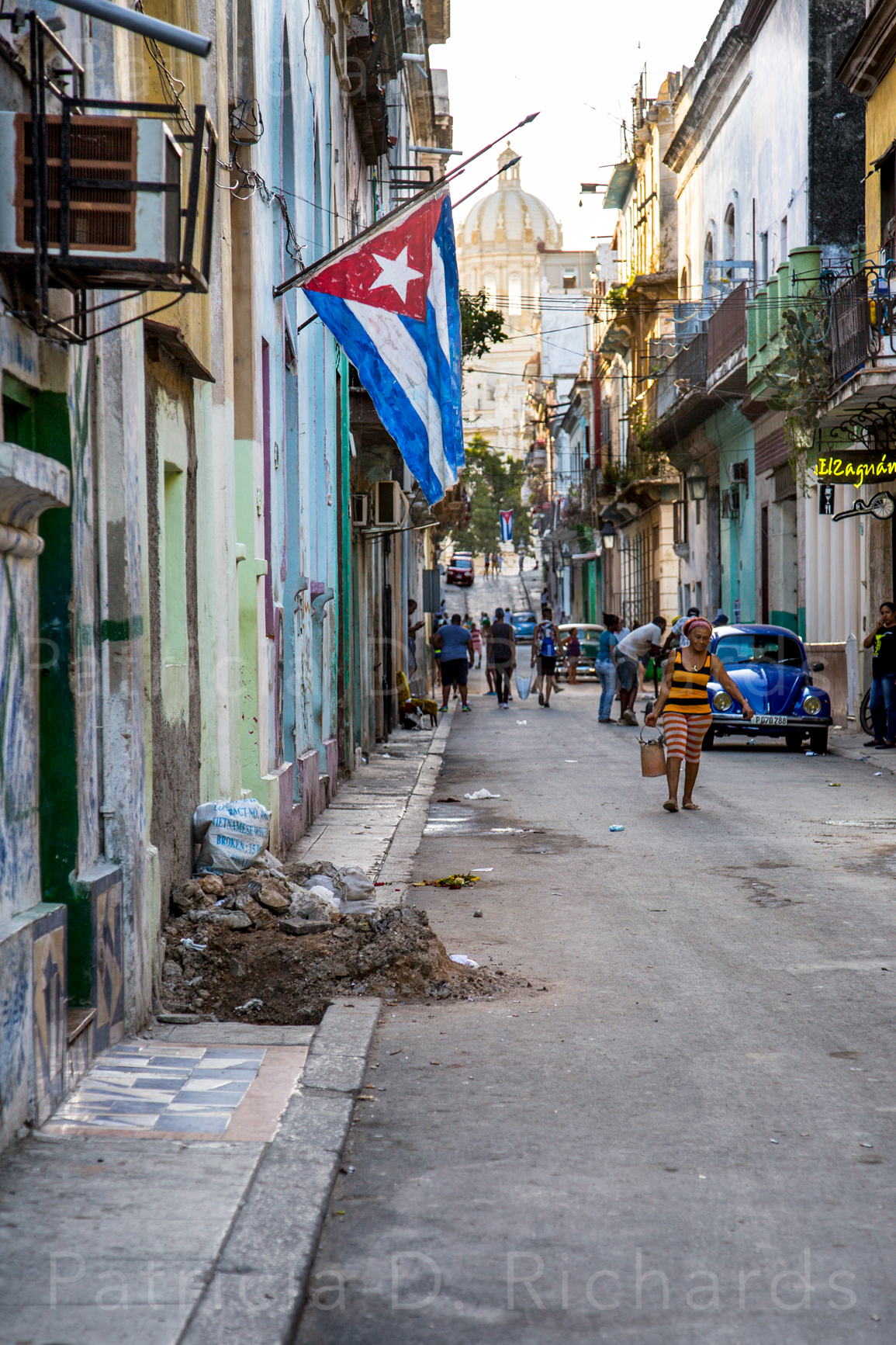
Painted Flag
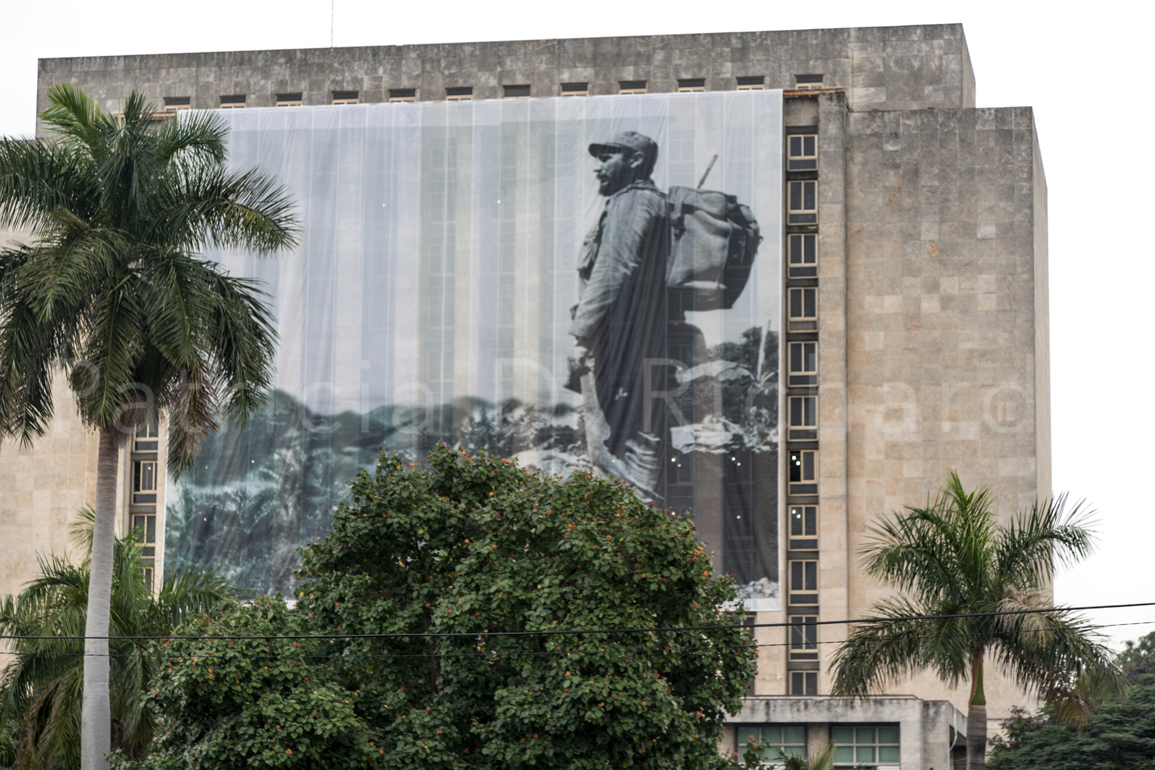
Eleven Stories Tall
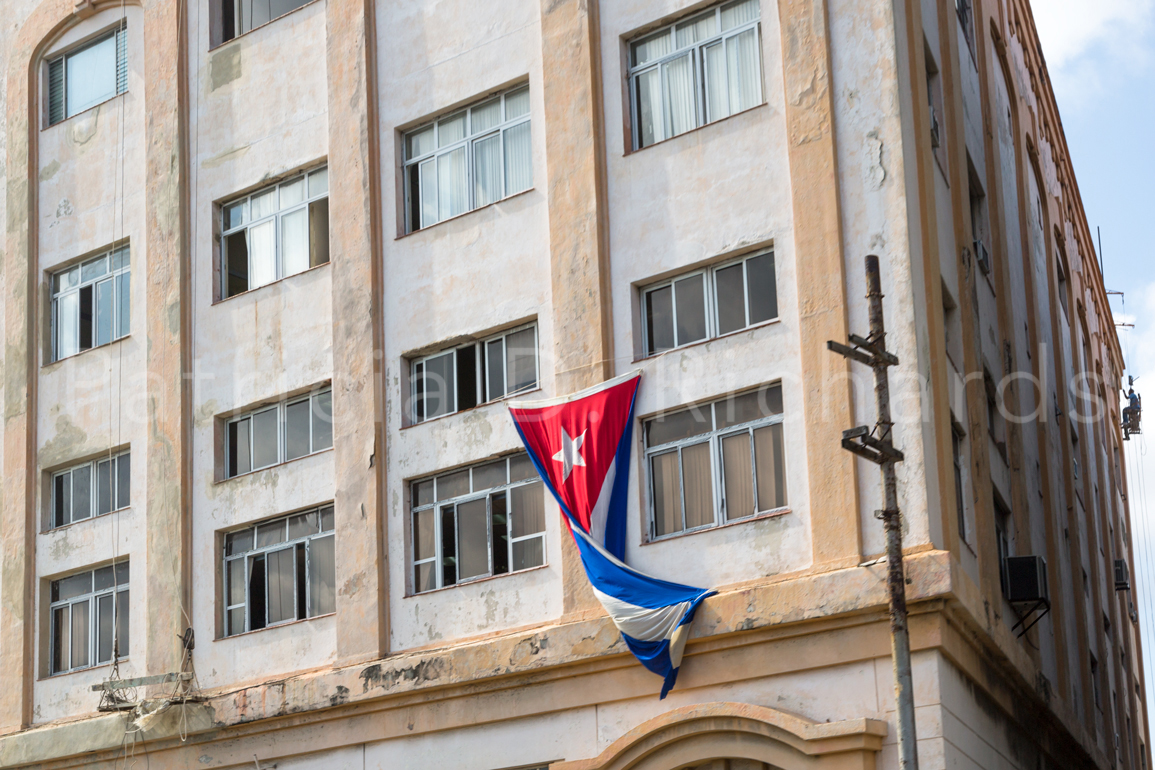
Between Windows
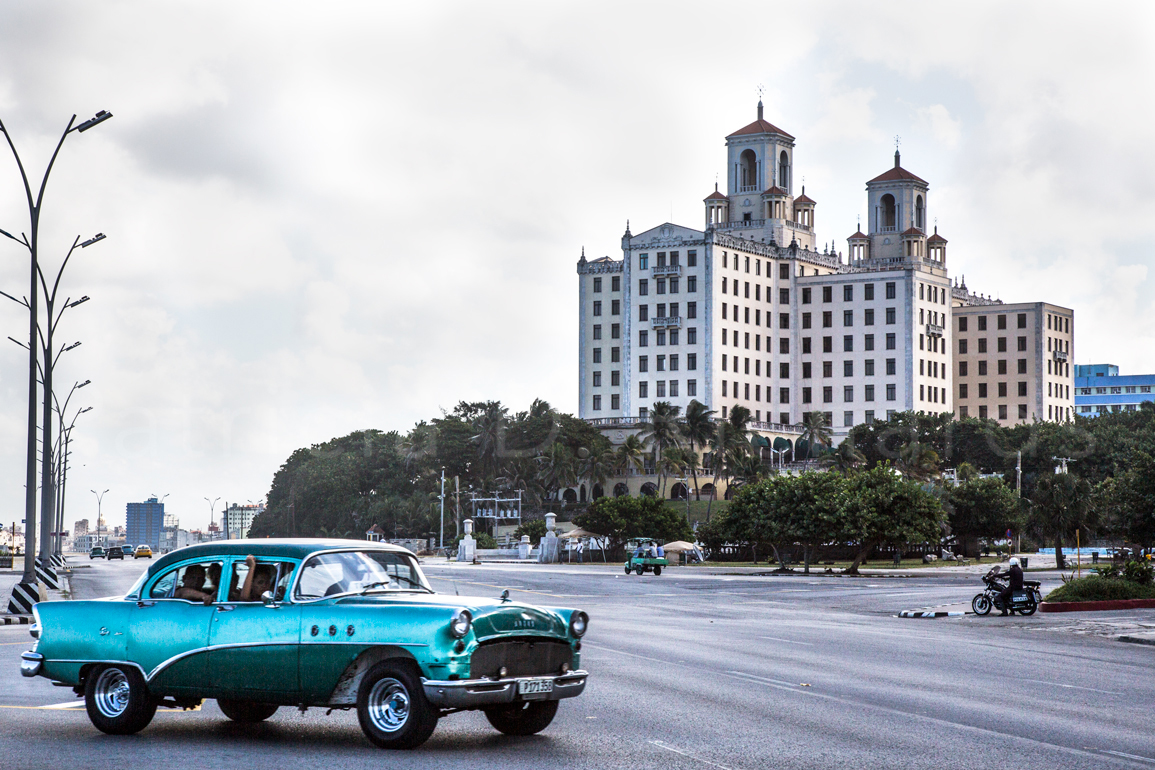
Hotel Nacional
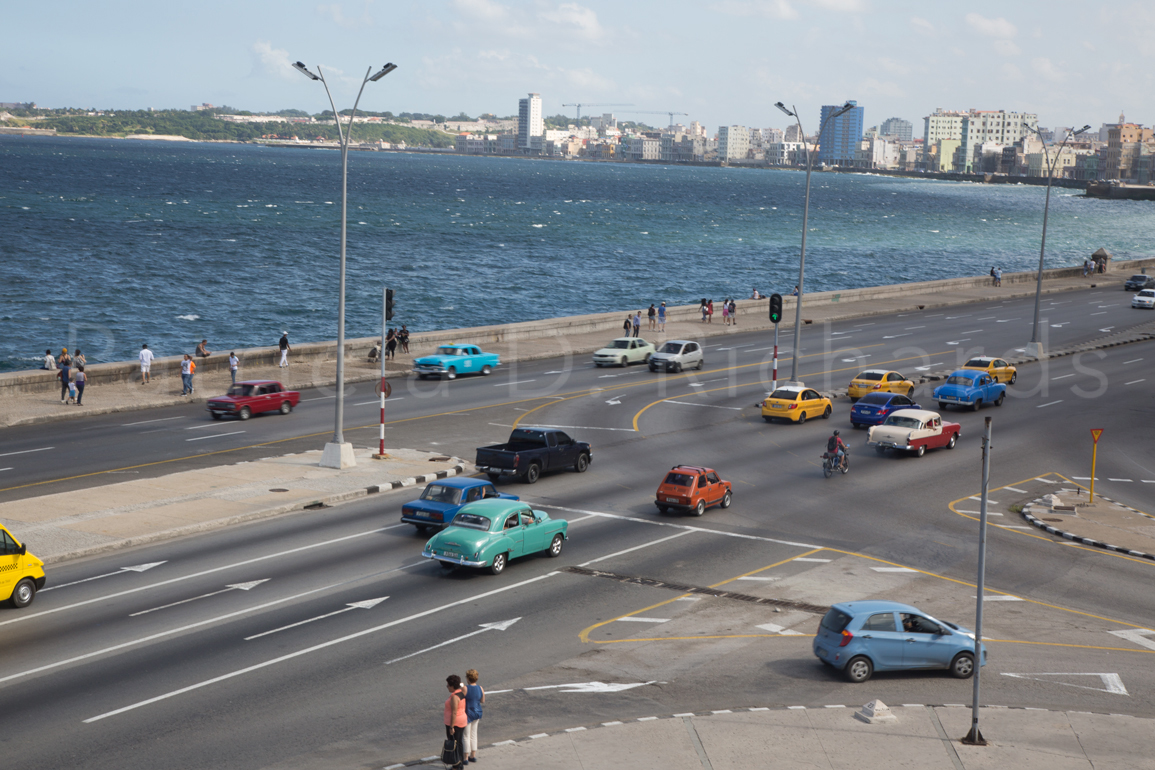
Life Goes On

H
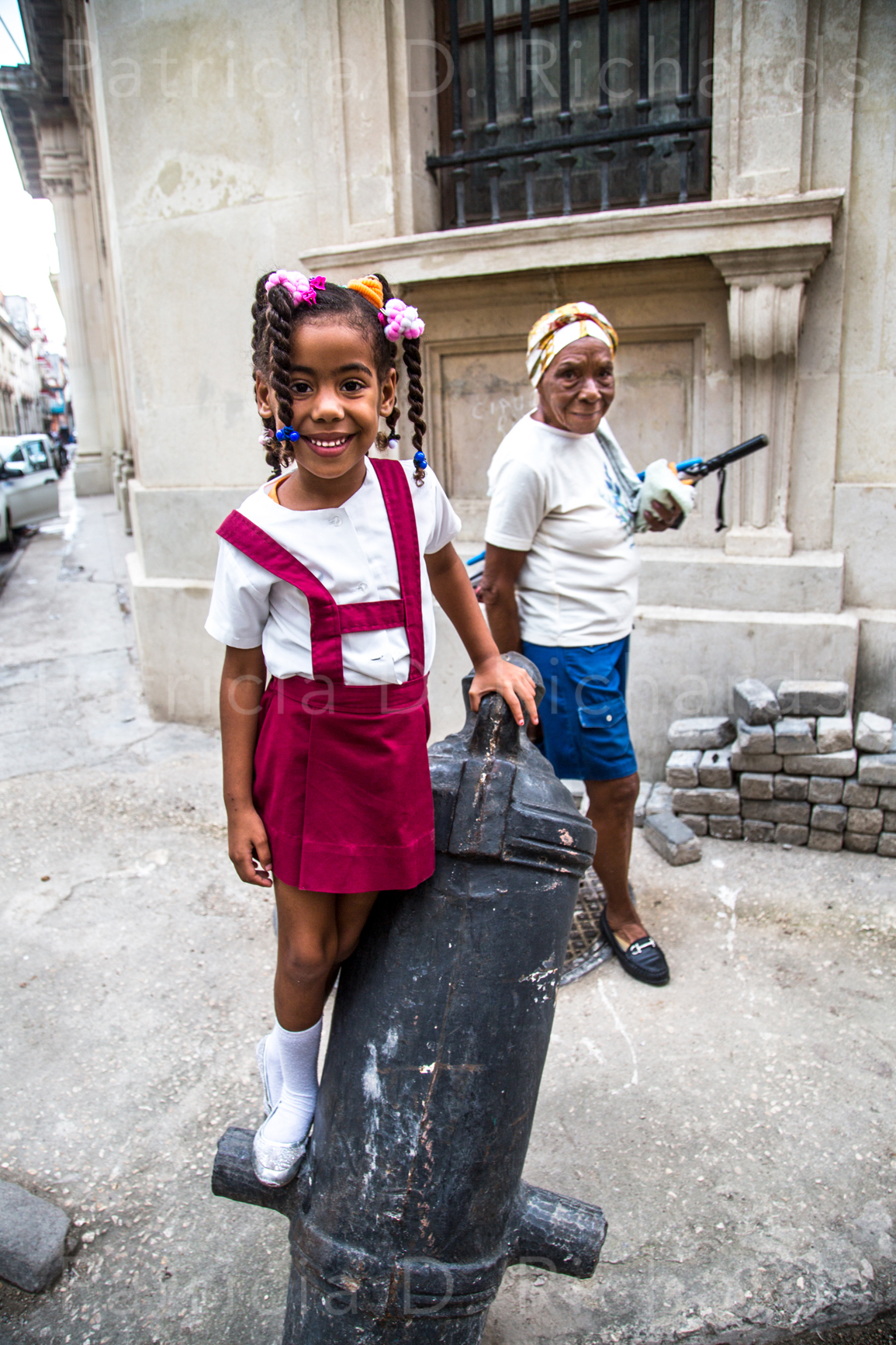
With Grandma
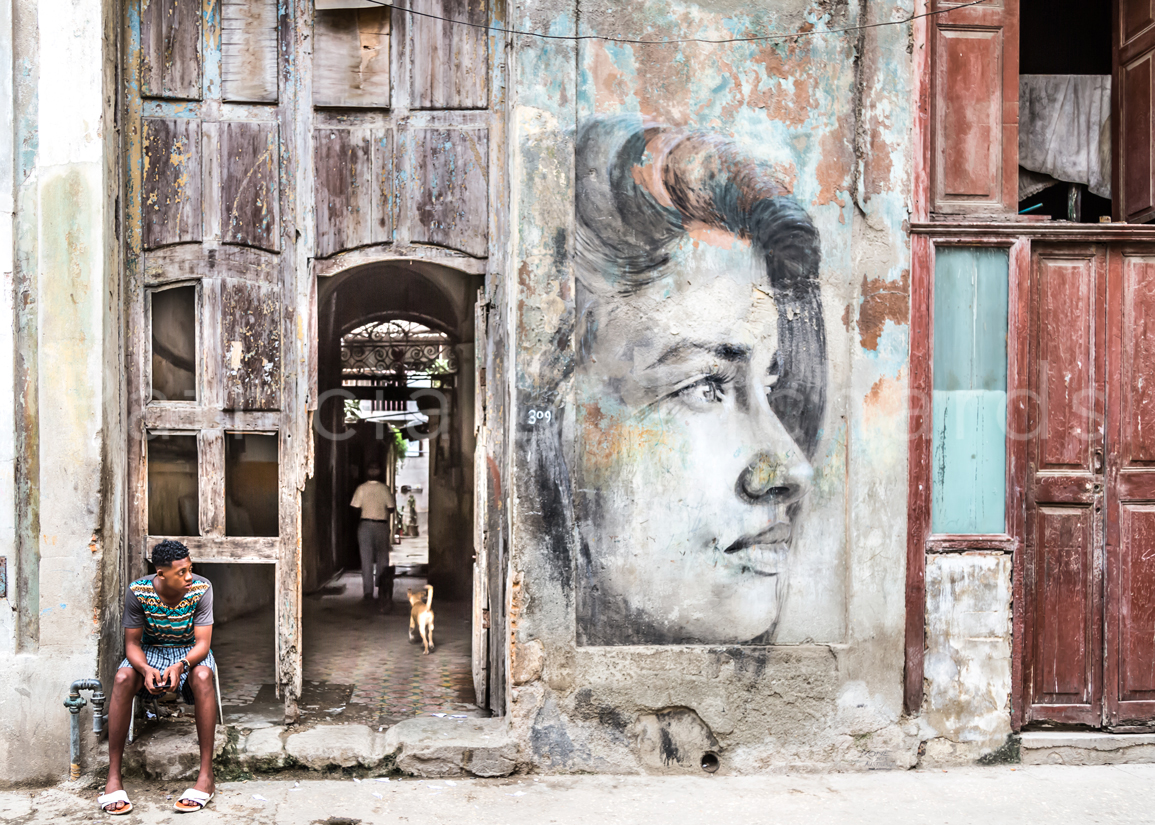
Havana-Old City
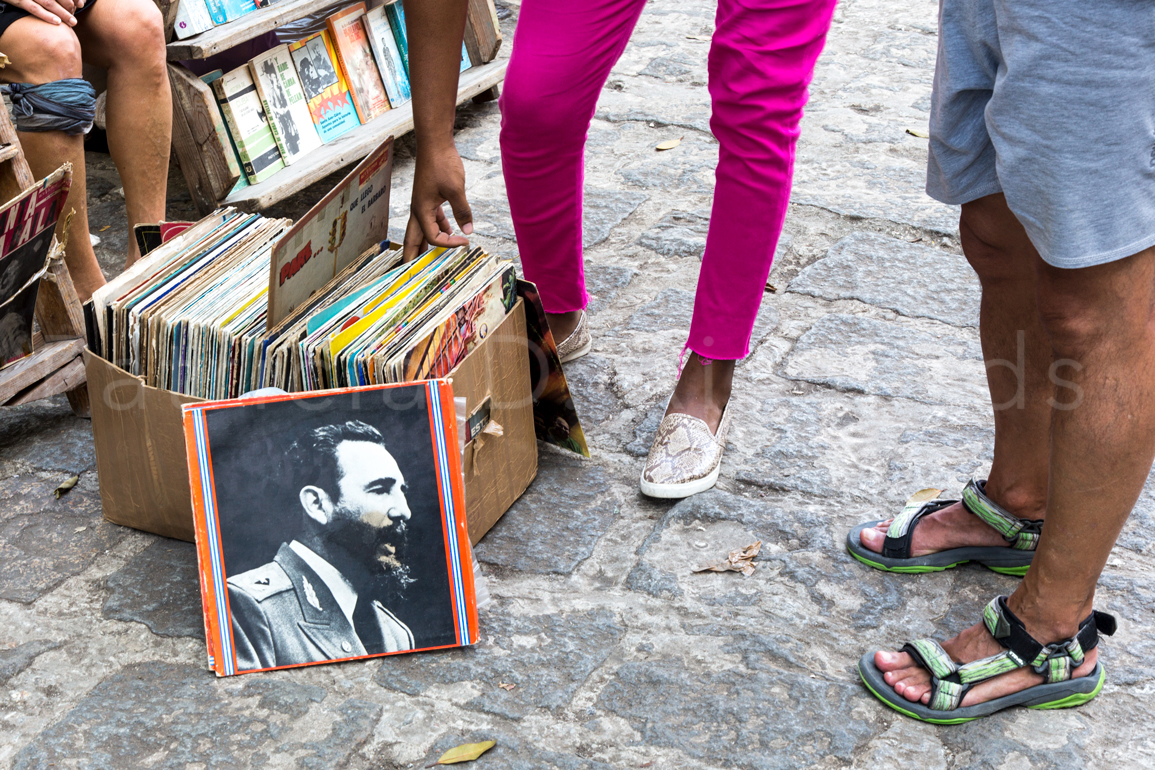
Plaza de Armas
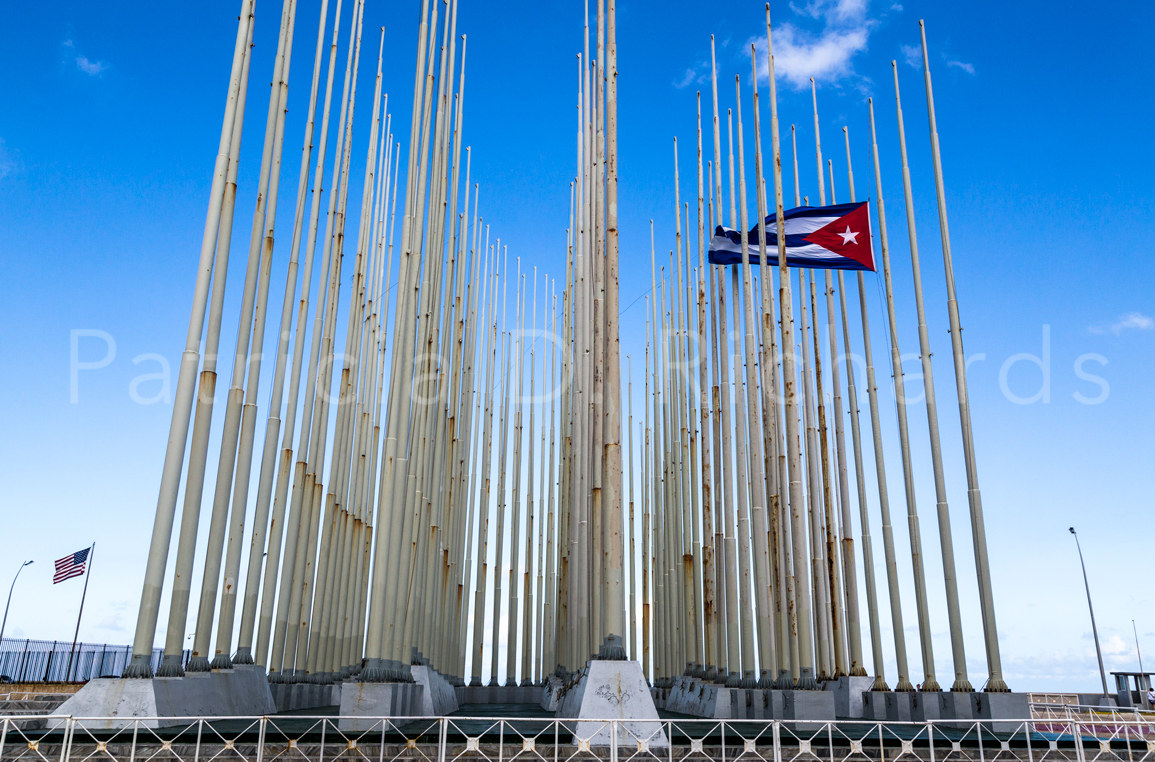
Havana after Fidel
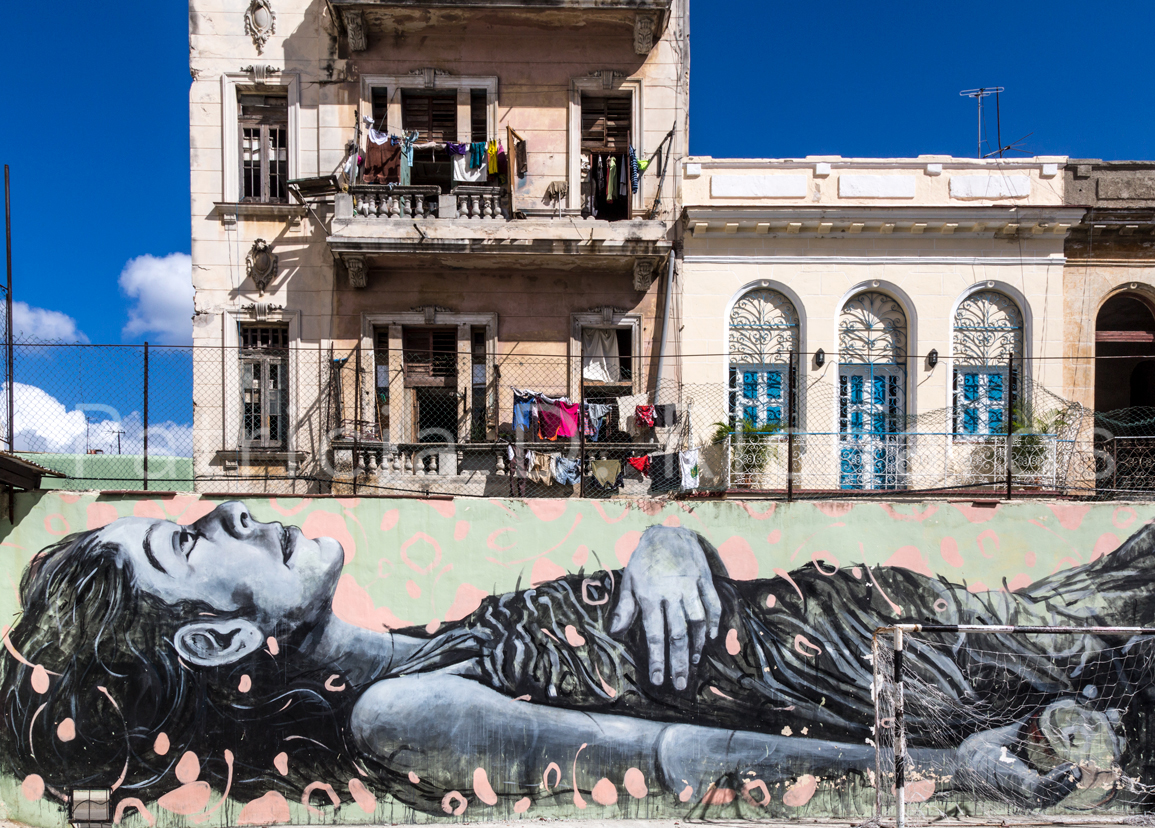
First day after Mourning
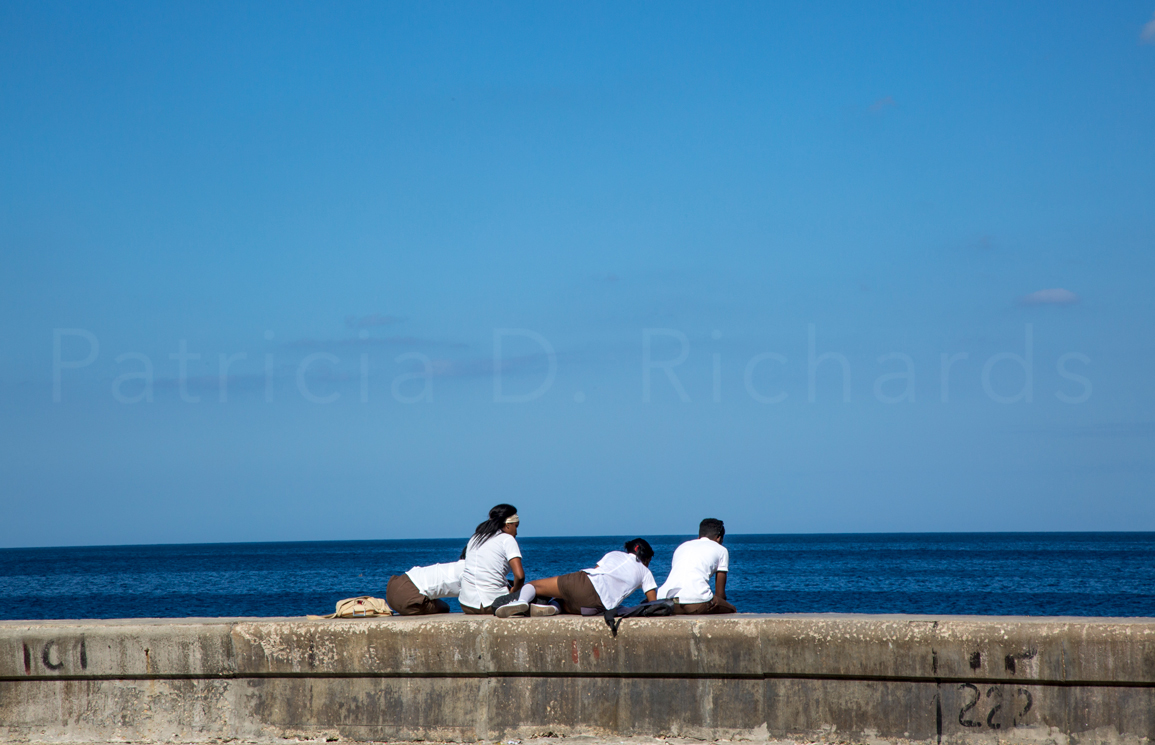
School Girls on the Malécon
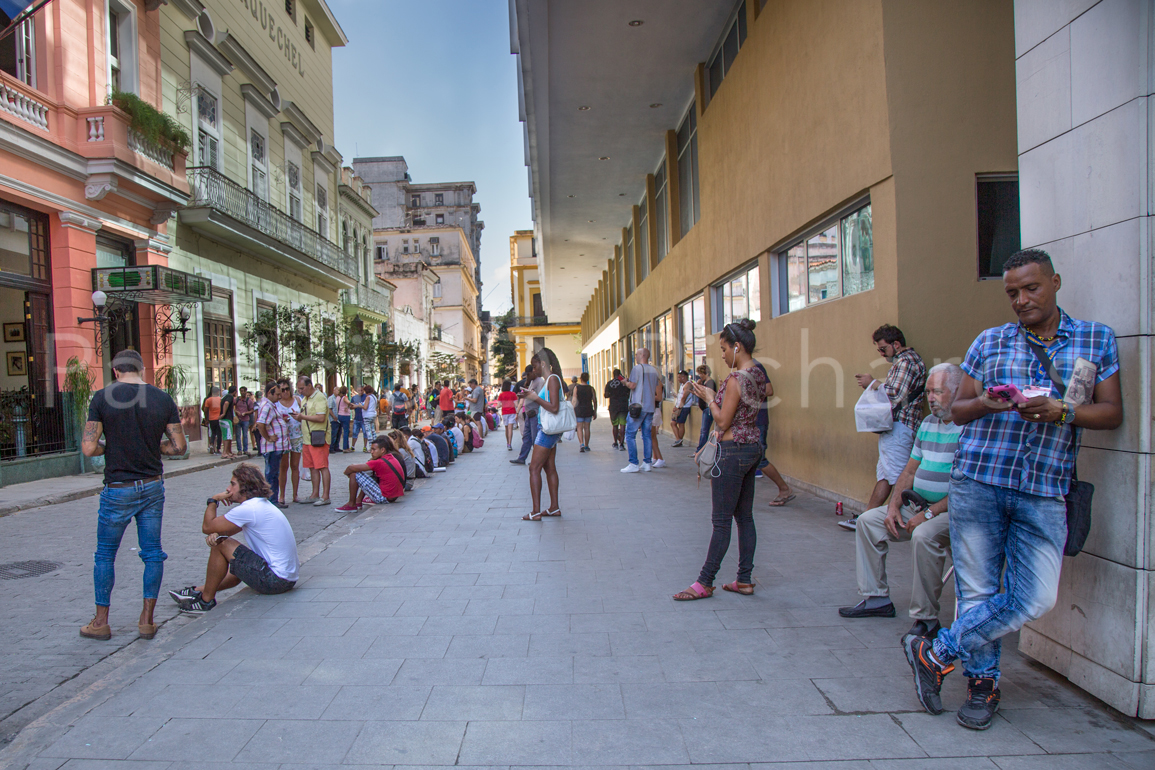
Internet Hot Spot
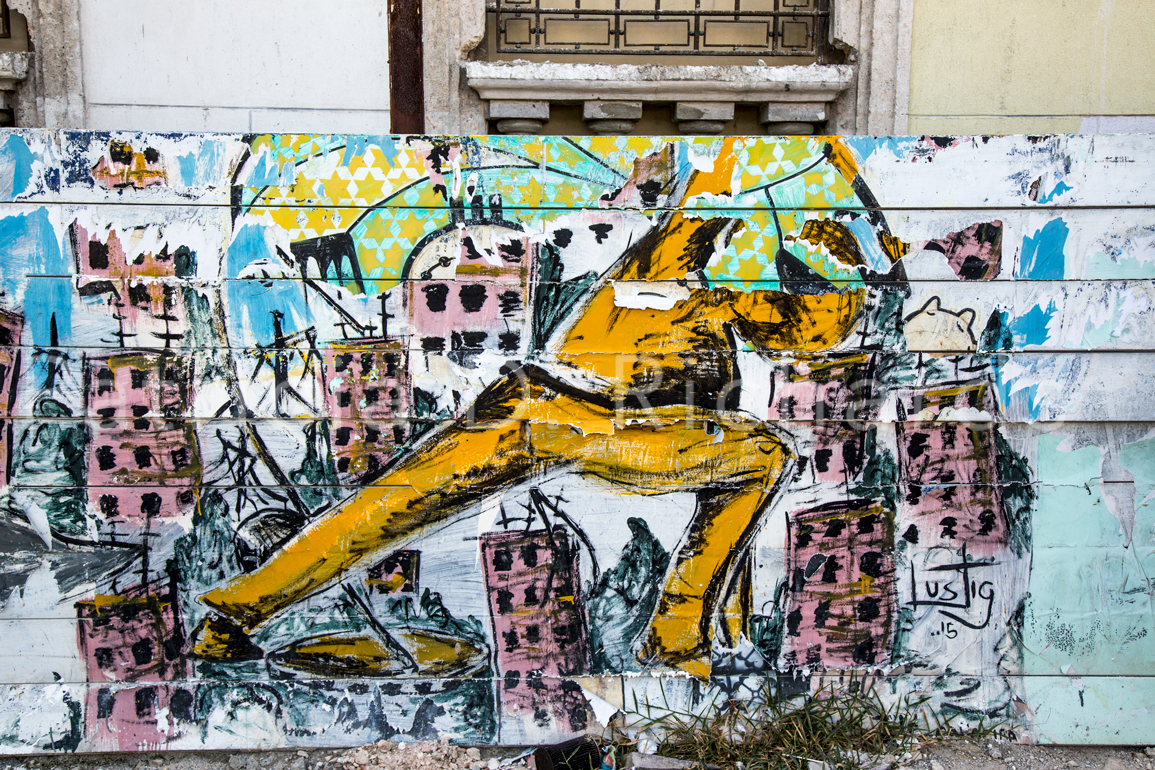
In Memorium
Blog Posts
Havana, During the Days of National Mourning: November 26 – December 4, 2016
On the death of the Commander in Chief of the Cuban Revolution, Fidel Castro Ruz, The Council of State of the Republic of Cuba declares nine days of National Duel, from 06:00 hours of November 26th until 12:00 hours of December 4th 2016.